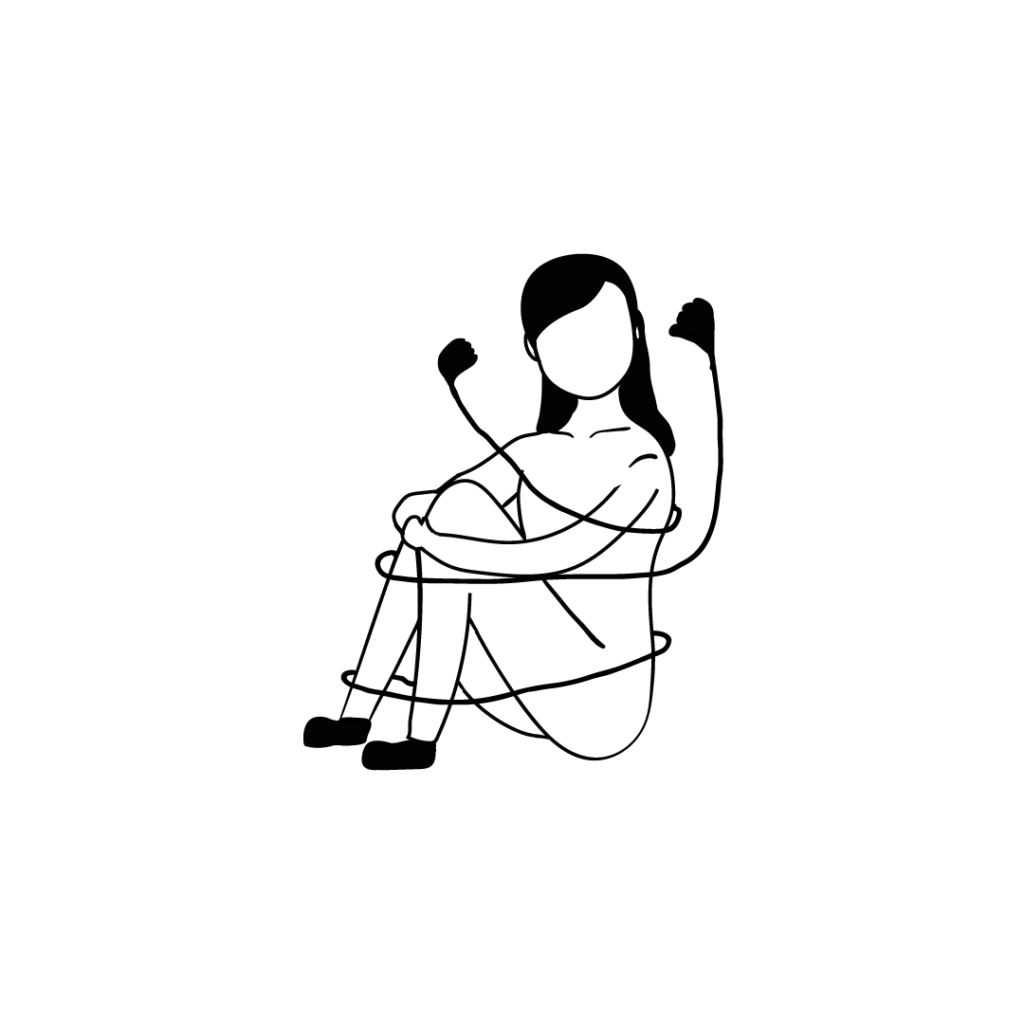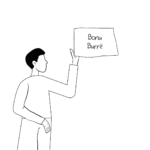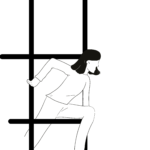KOSOVO: THE COUNTRY WHERE WOMEN AND GIRLS ARE VIOLATED
Even though every year the institutions and civil societies approach for violence towards women is almost as active as this year, our democratic Kosovo continues to be the place where women and girls don’t find wellbeing and safety. They are despised, mistreated, raped and even killed.
Illustration: Argjira Kukaj

Everywhere in the world, 25th of November is known as the International day for the Elimination of Violence Against Women.
This day is manifested in different ways; awareness raising campaigns, protests, symbolic actions and activities that have an aim of raising awareness of society around violence towards women and girls. Even in Kosovo these last few days there have been activities based on 16 days of activism that have an aim of raising awareness of society around regressive phenomena of our society, violence against women. We’ve seen non-governmental organizations, international organizations and state representatives while they were addressing the problems for this negative phenomenon.
Even though every year the institutions and civil societies approach for violence towards women is almost as active as this year, our democratic Kosovo continues to be the place where women and girls don’t find wellbeing and safety. They are despised, mistreated, raped and even killed. According to the OSCE report on the wellbeing and safety of women: “Over half (54%) of all women say they’ve experienced psychological, physical or sexual violence by a close partner since the age of 15, and almost three in ten women (29%) say they’ve experienced sexual harassment.
One in seven women (14%) say they’ve experienced physical or sexual violence by a partner or non-partner (psychological violence is not included here).” While for the women who’ve experienced physical violence by their prior partner the report states as follows: “Almost one in five women (18%) who have had a partner before say they’ve experienced physical and/or sexual violence by their prior partner, compared to 9% of them who have a current partner and state they’ve experienced physical and/or sexual violence by their current partners. 8% of surveyed women say they’ve experienced physical and/or sexual violence by the people they aren’t partners with”.
These numbers are of the highest in the region, and they weren’t much better the years before. As seen in these statistics, our women and girls continue to now have the wellbeing and safety that is guaranteed by law and human rights. Not only that, the surveyed women have experienced physical, psychological and sexual violence from non-intimate partners.
According to the OSCE report, 14% of women have experienced physical or sexual violence since the age of 15 from non-intimate partners. Because these figures show the blatant lack of concrete steps from the institutions to eliminate violence against women, women and girls have told themselves that they aren’t informed about what to do after the incident occurs, this fact is also seen in the percentage of women and girls who have reported at the police (only 9% from the partner and 2% from non-partners). Most have said they were afraid of being judged by police officials (as it’s been so in many cases), that they wouldn’t be believe, that they were blackmailed by their partners, that they didn’t have the economic basis and were forced to endure the violence etc.
If there would be institutional actions this would undoubtedly increase the safety of women and girls to report violence, so, the heads of the state must urgently take concrete steps towards eliminating this phenomenon which has big physical and psychological consequences in women and girls.
They should be able to find support in institutions, more shelters should be built for women and children who are victims of abuse, more awareness building campaigns should happen, and for an economic basis to be offered so that they aren’t dependent on their abusers. And naturally, laws to not be only on paper, but be applied. These demands are not a luxury, in fact they’re a precondition for social progress of a democratic country. The life and wellbeing of our Republic’s women is at stake.
But if this state persists, Kosovo will remain the country where women are violated. Liberalism and democracy would lose its meaning, Kosovo will be a patriarchal state and inhabitable by women and girls.
About the author: Armela Hajra, 16 years old from Mitrovica, is a high school student.
This activity is supported by Engagement for Equity Program – E4E, financed by United States Agency for International Development – USAID, and implemented by Advocacy Training and
Resource Center –ATRC.


